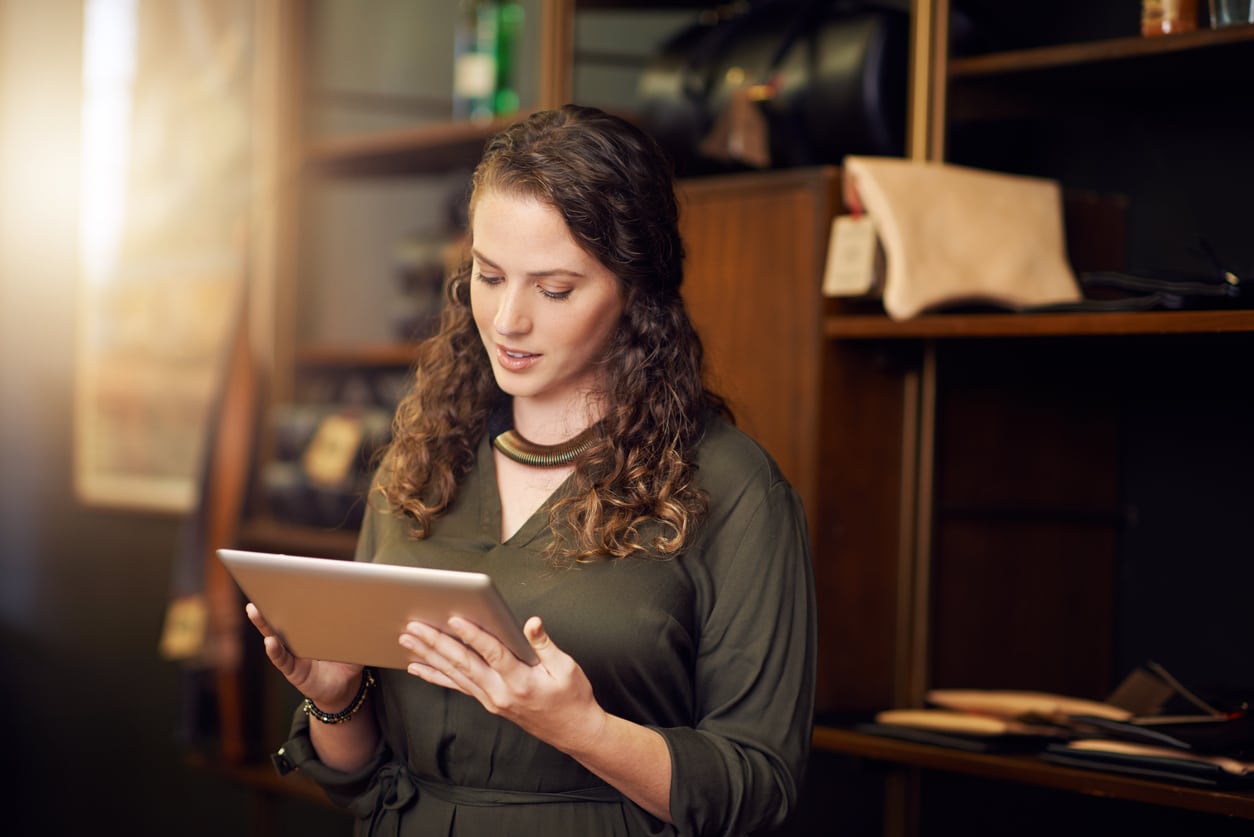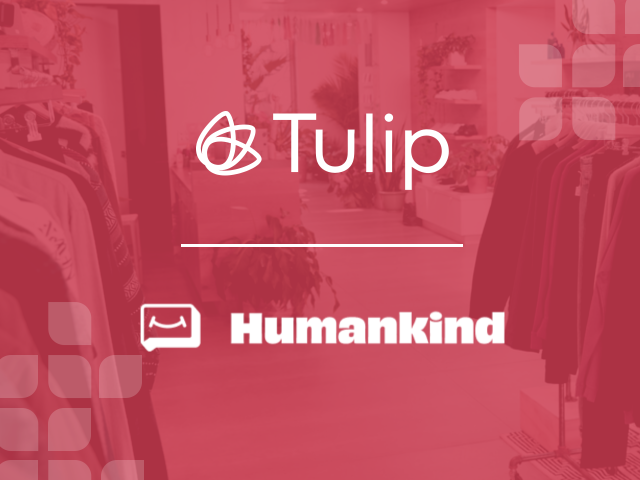Mulberry, the quintessentially British luxury retailer, is using the latest technology to enhance their customers’ shopping experience and increase operational effectiveness in the bargain.
It’s popular to inveigh against digital retailing stealing business from brick-and-mortar because digital retailing is growing over 20% per year compared to 6% for brick and mortar (Forrester, 2017). But the Mulberry experience shows how digital retail technology can complement in-store sales rather than compete with it. Technology creates this synergy by focusing on enhancing the customer experience irrespective of channel.
It’s no wonder that 45% of retailers plan to use artificial intelligence to enhance their customer experience in the next three years. (Customer Experience/Unified Commerce Benchmark Survey, Boston Retail Partners, 2017.) And annual worldwide retail-AI revenue is forecasted to grow from $643.7 million in 2016 to over $36 billion by 2025. (Artificial Intelligent Market Forecasts. Tratica, 2016)
In the Mulberry case, every sales associate in Mulberry’s Regent Street store carries an iPad or smartphone equipped with software from Tulip which enables the sales associate to instantaneously access the entire product catalog, the full range of product images, and information not only about their own store stock but also e-commerce and other stores’ stock availability.
Most significantly, the sales associate completes the transaction on their iPad or smartphone—there’s no queuing up at a fixed till point or checkout counter
Richard Cunningham, Mulberry’s Group IT Director, says “The ability of the Tulip software to complete the transaction without the customer having to be taken to a fixed till point enhances the customer experience. Packing of the product is done efficiently, back-of-house, while the customer is talking to the sales associate and the final product is presented by a second staff member.”
“The sales people love using the new technology,” Cunningham says, “the Assisted Selling is fast and slick and combined with Mulberry’s great category and product imagery make the client-facing aspects look fantastic.”
The Tulip Clienteling App is equally helpful: Sales associates easily schedule customer appointments, send personalized emails to clients by starting with pre-formatted customer email templates, and record special notes about customer birthdays, style preferences and so on. This kind of clienteling is especially attractive to millennials. In fact, 70% of U.S. millennials report they appreciate a retailer using AI technology to show them more interesting products. (Frontier Less Retail, JWT Intelligence, 2016).
Digital integration enhances and simplifies
All the Mulberry customer transaction and clienteling information syncs with Salesforce. Mulberry’s Salesforce CRM system continues to be the central repository for all customer data, including sales history, customer service contacts, marketing and retail client book information.
Gone is the separation between the selling of store stock vs e-commerce stock. The customer can choose items from either stock and check-out in a single, smooth transaction via the payment device docked to the back of the iPad and payment processing via Adyen. Tulip’s clients report increases in order size by as much as 15% and increases in customer satisfaction up to 30%.
The Salesforce and Tulip integration also enhances the power of the Salesforce Marketing Cloud Journey Mapping module. Since store associates constantly use Tulip’s mPOS (mobile point-of-sale) feature, they are far more likely to take the next step and record vital customer information. Of course, there is no substitute for personal, one-on-one interaction with the customer. Store associates can establish a far deeper connection with the customer face-to-face than is possible online.
By integrating Salesforce and Tulip, Mulberry not only leverages their prior CRM investment, but they also make each system more powerful than if they stood alone. Tulip’s clients report increases in year-over-year sales of as much as 10%.
Mulberry’s store associates are now an extension of their marketing department. They are armed with real-time, relevant information about customers and products, and they play a vital role in enhancing Mulberry’s customer intelligence.

Brand—front and forward
Prior to mPOS, the checkout counter played a central role in store layout and merchandising strategy. mPos makes this impediment to store branding obsolete. And Mulberry is the perfect case of elevating the brand above the mechanics of store design.
Mulberry’s identity is British—both time-honored characteristics and innovation and trendsetting. An early inspiration was drawn from the styles synonymous with English rural pursuits – hunting, shooting, fishing – and Mulberry’s immediately-identifiable, utterly individualistic style came to be dubbed “Le Style Anglais” in 1975. This idea is still their core identity. But they are continually updating their brand, to keep pace with current trends. Their website describes this dual focus in this way: “Between town and country, between Somerset serenity and London pace, Mulberry combines authentic, age-honored craft with an innovative fashion character.”
Mobile point of sale allows Mulberry to design the store environment to best represent this brand identity rather than accommodate bulky IT hardware and lengthy checkout queues.
Rolling out the future
Mulberry deployed an initial pilot of Tulip’s Assisted Selling App in their London White City store ahead of the main launch in the new London Regent Street flagship store. Based on this success, the Regent Street store now showcases Mulberry’s new store concept that fully utilizes mobile point of sale and removes all fixed shop-floor EPOS terminals. Covent Garden and Bond Street stores followed the Regent Street success.
Beyond London, the new technology-enhanced store design and customer experience will be rolled-out internationally, first in new stores, and then through systematic refitting or retro-fitting of existing stores.
Because Mulberry has stores across the globe—from New York to Seoul—the Tulip technology component of the new store concept needed to be enterprise-level and internationally scalable, and Tulip’s plan to roll-out its technology and support across the globe was a key to Mulberry’s selection of them as a partner.
Sophisticated technology—no training needed
A key part of the success of the new store concept is that it uses standard mobile devices and a truly intuitive user interface (with direct involvement from Apple in the user interface design). Sales Associates are fully trained in a matter of hours, not days or weeks. The technology is instantly appealing and empowers sales associates. This is a perfect example of technology enhancing human productivity and effectiveness rather than making people redundant.
A result of the quick training and immediate adoption is that the roll-out to additional stores can be achieved as fast as the technology is implemented and the stores are redesigned for the new concept.
Taking luxury retail to a new level
Cunningham sums up the Mulberry case: “It’s so exciting that we are bringing something new and genuinely valuable to luxury retail in partnership with Tulip. It’s enhancing our customer’s experience and energizing our whole organization.”
Read More: The Return of Intimacy in Retail – Part 1
Launch our Store Associate Mobility & Clienteling Solution and transform your in-store customer experience. Join Tulip at NRF 2019.

